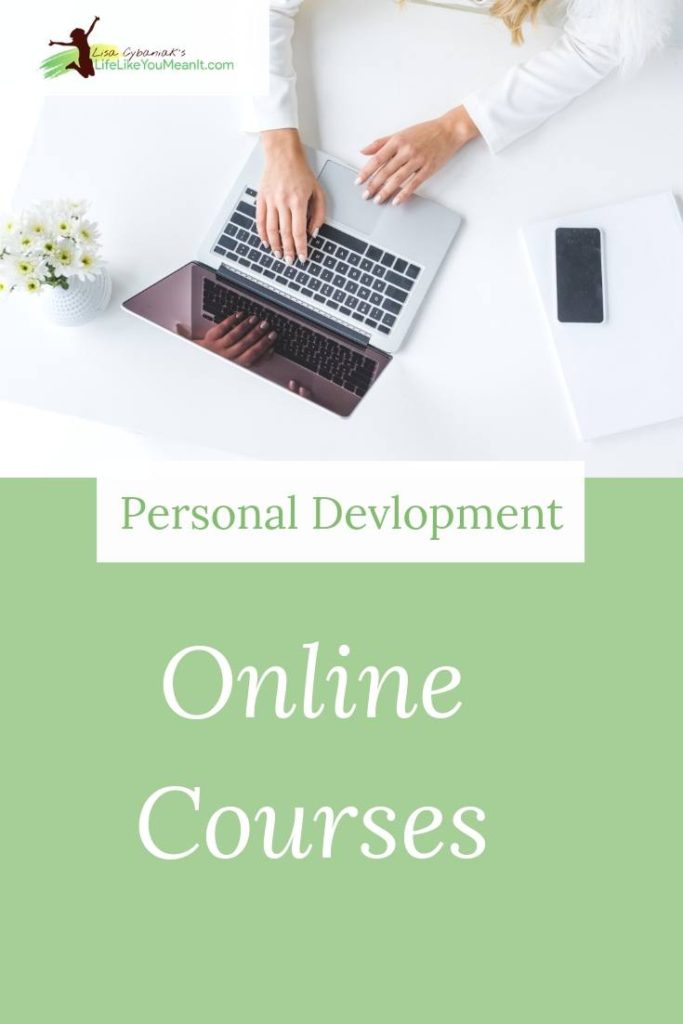by Lisa Cybaniak

You can also listen on…
Impostor Syndrome can impact our lives in so many ways that sometimes you may not even recognise that that is what’s going on.
For example, have you ever been giving a presentation, doing a Live video, giving a talk, hosting a meeting, or any other situation where you’re putting yourself in front of others, and find yourself convinced others are judging you? Maybe they’re judging your educational background, gender, ability to speak confidently. But how do you really know they’re in fact judging you? Could you be judging yourself?
Today, we’re talking about Impostor Syndrome, the persistent inability to believe that your success is deserved or has been legitimately achieved as a result of your own efforts or skills. We’re talking about how this can manifest, learning about some interesting examples, and of course, learning what we can do about it.
Karen Kwong is a highly experienced executive and business psychology coach, and is the founder of RenOC. Karen was head of trading at one of the largest UK fund managers for 15 years, battling against what could have been debilitating Impostor Syndrome. She was instrumental in helping steer the ship into less choppy waters during the 2007 financial crisis.
Meet Karen Kwong
Since then, she has retrained with a Masters in Organisational Psychology. Her clients come in many sizes, ranging from a FTSE 100 company to SMEs, as well as their boards. She has been invited to speak at events hosted by industry associations, at in-house programmes, as well as running workshops for business leaders on performance in high-stakes environments and wellness retreats in resilience, stress management, and personal achievement.
And she’s getting real with us today about what Impostor Syndrome is, why we need to be strong and confident instead of relying on others to give us what we think we need, and how to address Impostor Syndrome, no matter how it’s manifesting.
So, let’s dive right in!
Fake it until you make it
Honestly, this was my favourite expression about a decade ago. I used this all the time with a group of actors who needed to learn choreography for a production. Most were untrained dancers, with no experience whatsoever.
I said this expression so many times during our choreography sessions that a dear friend in the theatre group had t-shirts made!
I wasn’t trying to get them to dance to perfection. Rather, I was trying to get them to dance with confidence.
Karen also believes in the power of speaking, thinking, and acting with confidence. She gives the example of selling cakes. If I approach you asking you to buy my cakes, telling you that they probably taste terrible, it was my first attempt, I had no idea what I was doing, and the last time I made cakes, I gave everyone food poisoning, how excited would you be to buy my cakes?
Now, there may be some truth to some of those thoughts (I have made cookies that, when thrown at a wall, broke through the drywall), but by even thinking about them while trying to sell my cakes, I’m lacking confidence. And the point is that the lack of confidence I have will show, clear as day.
Whereas, if I take the time to focus on the positive and tell you about the nutritious ingredients I used, the effort I put into making the cakes, and how wonderful the room smelt during baking, BOTH of us are more likely to want the cakes. And that means my confidence will be boosted, helping to decrease Impostor Syndrome.

Your achievements
Since Impostor Syndrome hinders your ability to recognise your own achievements, Karen recommends you make a conscious effort to research and reflect on everything you’ve accomplished.
Most people will immediately think about their career, and with a little coaxing, may start to write down some of the goals they’ve reached, or things they’ve achieved, like getting the job in the first place, then a promotion, then a raise.
That is a very important step in decreasing Impostor Syndrome, to acknowledge these types of achievements. Remember to do the same for all your personal achievements as well.
And Karen gently reminds us that our strengths as human beings needs to be a part of this exercise – it can be easy to forget about that.
Once you have your list, you’re likely still not going to give yourself credit for these achievements. Impostor Syndrome will have you brushing off many of your achievements, comparing yourself with others to diminish any strengths you’ve identified, and making excuses for your larger achievements.
That may sound something like, “Well I got the promotion but that’s because nobody else applied”.
Rest assured, that’s a normal reaction for people with Impostor Syndrome, but at least this begins to open the door for your conscious mind to chat with your unconscious mind about everything on that list.
Turn Impostor Syndrome into potential
Now that you’re clear on all your achievements, it’s time to acknowledge that you’ve done it, and believe in it!
Karen suggests a change in perspective by beginning to look at your experiences as opportunities to learn and grow. For example, you got the job you have now, on your own merits. You may still feel like there are “better” people for the job, so let’s start looking at the opportunity you have now to learn new skills.
Buy starting to embrace this shift in thinking, Karen believes you’ll start to become hungry to improve and be the best version of yourself. And that’s exactly what will allow Impostor Syndrome to become about finding your potential, rather than something that beats you down.
More from this episode
Karen and I talk about so much more in this episode, like how getting a coach not only helps to hold you accountable, but it gives you access to someone who will always positively push you and support you, asking the difficult questions that our well meaning friends and family members just can’t do in the same way.
Karen also opens up and shares her experience with Impostor Syndrome, how it had the potential to beat her down, and how the actions and reactions of those around her perpetuated her Impostor Syndrome, instead of providing her the support she needed. This is exactly how Karen came to realise the power of finding her inner strength over finding her strength in external sources.
She also shares a few examples of how Impostor Syndrome has shown up in the lives of some of her clients, giving us a fascinating glimpse into the diversity of its impact.
I’ll leave you with this question: How clear are you on how your fear of not being good enough is impacting you?
Press play on the episode above to get all the details!
Follow Karen Kwong
Find out more about Karen through her website. You can also follow Karen on Twitter, Instagram, Facebook, and LinkedIn.
Want to help this podcast? Follow us, subscribe, and leave a comment on this, or any other episode!
Download my Shifting Your Mindset Guide, with workbook, today!
Download my free Anxiety to Action Cheat Sheet for Entrepreneurs, here!
Join my free 30-Day Challenge for emotional well-being!
Voice over credit: Shari Vandermolen. Shari is offering a free download of one of her songs to the fans of the Life Like You Mean It podcast! Just visit www.GiftFromShari.com and tell her where to send it. Shari’s debut album is available for streaming on all the major platforms including Spotify and iTunes.
Top Picks
Freebies for You!

















